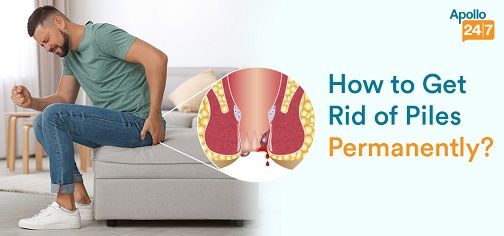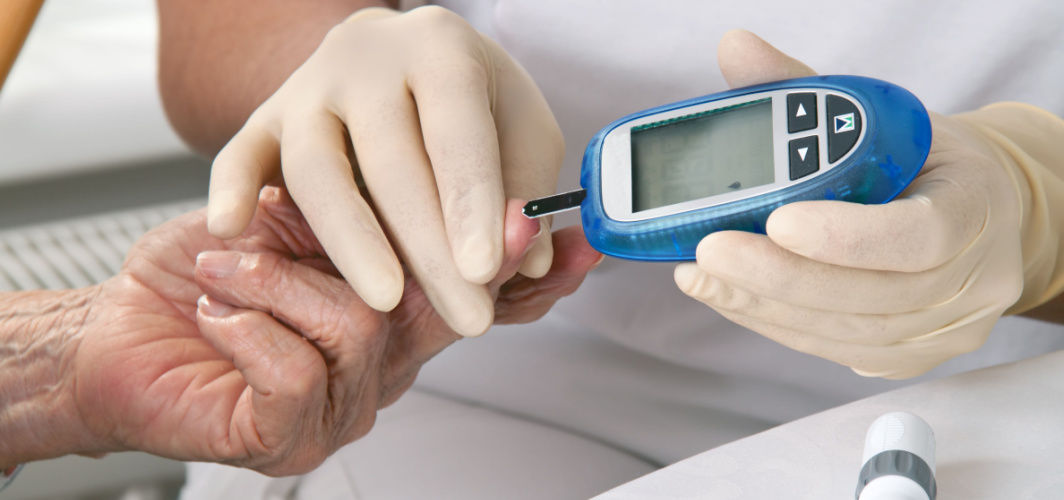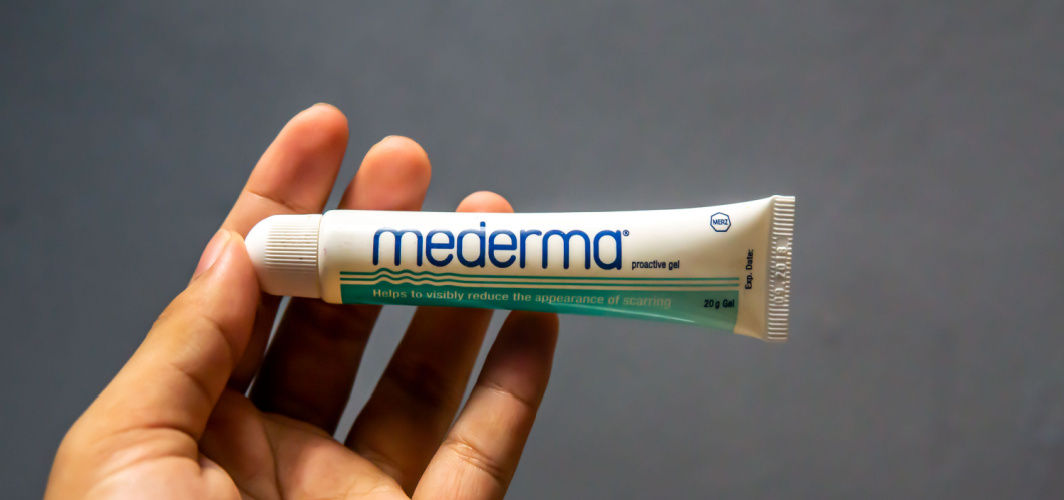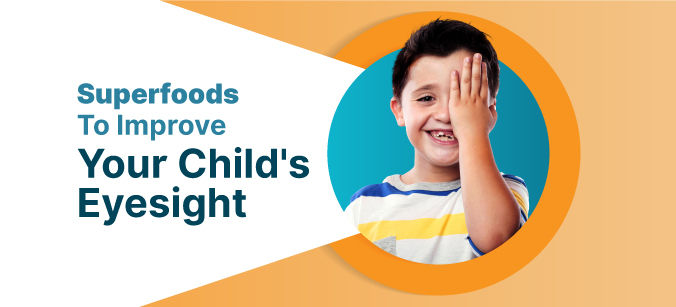General Health
How to Get Rid of Piles Permanently?
4 min read
By Apollo 24|7, Published on - 30 June 2022, Updated on - 03 June 2023
Share this article
0
37 likes

Piles are the result of swollen veins in the lower anus and rectum. Piles are painful, annoying, and embarrassing. They are also known as haemorrhoids, a common problem that 75% of people experience at some point. However, only 4% of people seek advice from a doctor, that’s why no wonder, it’s a problem so many cannot get rid of quickly and permanently.
Effective treatments to get rid of piles
In most cases, piles may or may not resolve on their own hence one needs treatment from an expert colorectal specialist that can significantly reduce the discomfort that many people experience with piles.
Medications
Initially, the doctor will start with medications such as hydrocortisone to treat piles along with several other medicinal options such as pain relievers, stool softeners, and other corticosteroids.
Hence to treat piles and itchy bottom hydrocortisone treatment comes as creams, ointments, and suppositories which may contain local anaesthetics and other medicines to soothe the system. However, different types of corticosteroids can be given as injections or tablets to get instant relief and permanently get rid of piles.
Lifestyle changes
The exact cause of rectal prolapse (an intestinal part bulging out of the rectum) is due to the weakening of muscles that support the rectum. However, rectal prolapse can also occur due to untreated constipation, damage during childbirth, faulty lifestyle, and lifting of heavyweights. This condition is treated by repairing the prolapse surgically when it is severe. However, minor bulges can also be treated through lifestyle changes and prescribed stool softeners and corticosteroids.
Common lifestyle changes include:
- Eating more fibre-rich foods such as salads, vegetables, and fruits
- Drinking plenty of water and other fluids
- Limiting the time you spend in the toilet
- Maintaining a healthy weight.
Recommended read: How do you deal with piles naturally at home
Surgical options
If a person has severe prolapsed piles then the only way to get rid of haemorrhoids completely is through surgical intervention by a colorectal surgeon. The most preferred procedures are:
Banding
The doctor places an elastic band around the base of the pile, cutting off its blood supply. Haemorrhoids will typically fall within one or two weeks.
Sclerotherapy
The doctor injects medicine into the haemorrhoid to make it shrink and eventually shrivel up. This is an alternative to banding and marks great results.
Infrared coagulation
During this procedure, a surgeon uses an infrared light device to burn the haemorrhoid tissue.
Haemorrhoidectomy
This type of surgery involves the total removal of haemorrhoid tissue. It is the most effective option for completely removing piles, but there is a risk of complications, including difficulties with passing stools.
Haemorrhoid stapling
During this procedure, the surgeon uses staples to block blood flow to the haemorrhoid tissue.
Why should you get piles treated at the earliest?
In some cases, piles may aggravate and lead to other complications these may include
- Anaemia- This can happen due to long-term bleeding or chronic haemorrhoids.
- Profuse blood loss- This can happen when the blood supply to the haemorrhoid is cut off. This condition is not only painful but may also cause profuse bleeding which may require immediate surgical intervention.
Can piles turn into cancer?
Dr Kishore V Alapati, a colorectal surgeon associated with Apollo 24|7, states that “piles is a very common non-cancerous problem that is encountered worldwide across all races and gender. More than 80% of the cases of piles can be treated effectively using medications. Surgeries are only recommended if the affected person is bleeding profusely, has a burning sensation, gains no relief from medical treatment, or if the haemorrhoid is protruding out of the anus.” He further stated that, “cancer can sometimes mimic as piles. Therefore, a colonoscopy is extremely essential for diagnosing if piles is the reason for the anal bleeding.”
Piles, also known as haemorrhoids, are swollen veins in the lower anus and rectum and can cause discomfort in and around the anus. Piles vary in size and location and many people with piles do not seek medical advice which leads to further complications and delay in healing. Piles can be the result of overexertion, chronic constipation, pregnancy, childbirth, and forceful straining when passing stool. Many piles resolve on their own, but visible, painful piles may require surgery to remove haemorrhoids to get permanent relief. Hence, do not suffer in silence and seek expert advice at the earliest.
General Health
Leave Comment
Recommended for you

General Health
PPBS Test – Preparation, When To Take It, Uses, Purpose, Cost
Learn about the PPBS test: how to prepare, when to take it, its uses, purpose, and cost. Get the information you need for better healthcare decisions.

General Health
Mederma Cream: Uses And Side Effects
Explore Mederma Cream's versatile uses and be informed about potential side effects. Make confident choices for your skincare regimen.

General Health
5 Superfoods to Improve a Child’s Eyesight
In today’s time, millions of children worldwide suffer from poor vision or some eye disorder. This can be easily prevented by maintaining optimum eye health. There are a number of foods that help in improving the overall health of your kid’s eyes. Adding these to your children’s daily diet can do wonders!
Subscribe
Sign up for our free Health Library Daily Newsletter
Get doctor-approved health tips, news, and more.
Visual Stories

Plant-based Foods That Are a Great Source of Iron
Tap to continue exploring
Recommended for you

General Health
PPBS Test – Preparation, When To Take It, Uses, Purpose, Cost
Learn about the PPBS test: how to prepare, when to take it, its uses, purpose, and cost. Get the information you need for better healthcare decisions.

General Health
Mederma Cream: Uses And Side Effects
Explore Mederma Cream's versatile uses and be informed about potential side effects. Make confident choices for your skincare regimen.

General Health
5 Superfoods to Improve a Child’s Eyesight
In today’s time, millions of children worldwide suffer from poor vision or some eye disorder. This can be easily prevented by maintaining optimum eye health. There are a number of foods that help in improving the overall health of your kid’s eyes. Adding these to your children’s daily diet can do wonders!